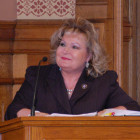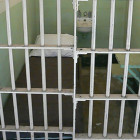
Atlanta Forum Set on Alternatives to Alternative Schools
|
A year-long research and reporting project on equity in education in Georgia schools will frame an upcoming public discussion for professionals and families in Atlanta. “Research has found children of color, poor children and children with learning disabilities tend to be disciplined more harshly in public schools,” said Chandra Thomas Whitfield, host of the forum. That’s one of her findings at the end of a year of her work as a Soros Justice Fellow. The panelists -- most of whom she has interviewed in her years of work as a journalist -- will discuss this harsher punishment of certain children, then what happens when students are put into so-called alternative schools. She defines those as schools where children have been put out of a traditional setting for a discipline or academic problem.










